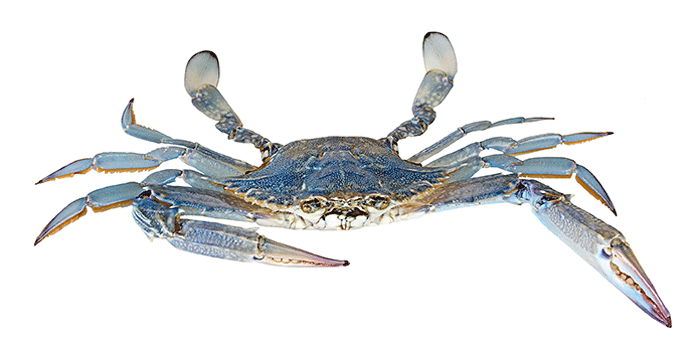Independent assessment of Western Australia’s fisheries confirms the green credentials of the state’s wild-caught seafood and pearls
 Blue Swimmer Crab
Blue Swimmer Crab Photo: 123.com
By Gio Braidotti
Western Australia is on track in its world-first bid to seek independent assessment of the sustainability of all its wild-catch seafood, pearl fisheries and ornamental fisheries.
As part of a $14.5 million state-government-funded project, independent fishery bodies have already used the Marine Stewardship Council (MSC) environmental standard to pre-assess most of WA’s fisheries.
MSC is the world’s most respected scientific standard for sustainability, with the state’s rock lobster fishery the first fishery in the world to be MSC certified.
The project will also fund the next steps – the full MSC assessment process as well as the first audit following certification. In addition to rock lobster as an existing certified fishery, six of the state’s 46 fisheries have already commenced or are ready to take those steps:
- the Exmouth Gulf Prawn Fishery;
- the Shark Bay Prawn Fishery;
- the Peel-Harvey Crab Fishery;
- the Peel-Harvey Sea Mullet Fishery;
- the Deep Sea Crab Fishery; and
- the Pearl Fishery.
The Peel-Harvey Crab Fishery is the first in the world to seek MSC certification for both commercial and recreational fishing.
The certification specifies a fishery by species, fishing method and area. Certification for the above six fisheries covers nine different categories of assessment, known as ‘units of certification’,
Kim Walshe from the WA Department of Fisheries says that six fisheries a year is probably the optimal level for the project’s certification phase. That means the project is long-term and will take several years to complete if all fisheries participate.
“While we are working with every fishery during the pre-assessment process, the transition to certification requires the consent of each individual fishery. There can be valid reasons to be cautious or to delay certification, given industry must pay the ongoing costs after the first annual surveillance audit,” Kim Walshe explains.
He cites the example of fishers that are yet to receive a market signal of demand for MSC-branded seafood or a price premium. “There needs to be positive incentives in place and these are now being seen more clearly, as market trends are moving in favour of sustainably sourced seafood,” he says.
“For example, we are seeing supermarket chains preparing to promote certified sustainable fish products and that, I think, will rapidly help shift public perceptions.”
Where the pre-assessments have identified any shortfalls in a fishery’s ability to meet the MSC standard the project can provide funds for fisheries improvement programs.
“Money is limited and we encourage fisheries to develop relationships with other funding providers, for example, the supermarkets,” Kim Walshe says.
The program is expected to provide a range of benefits to WA including enhanced community confidence in the sustainability of the state’s fisheries and greater certainty among fish consumers that their seafood purchases are sustainably fished.
The benefits are expected to grow substantially as more WA fisheries are certified and a critical mass is reached. Guy Leyland is the project leader for MSC certification with the WA Fishing Industry Council (WAFIC) in Perth. His role is to manage industry aspects of the government’s MSC initiative.
He says the certification process is progressing well and the opportunity of government assistance to pursue MSC certification is “percolating through” the different fisheries. Those trading into export markets and that have close connections with buyers have been leading the way, but it will be a long-term process to engage all fisheries in the certification scheme.
WA’s MSC track record is already impressive. In 2000, its rock lobster fishery became the first in the world to achieve the certification. That fishery was re-certified to the MSC standard for the third time in 2012, when WA also launched its statewide initiative.
The project is a partnership between the WA Department of Fisheries, WAFIC (the peak commercial fishing industry body), Recfishwest (the peak recreational fishing body) and the MSC.
The FRDC is also providing funding to WAFIC to assist in industry communication and engagement.
Kim Walshe will present ‘Western Australian fisheries – The MSC journey to the future’ at Seafood Directions 2015 industry conference in Perth on 25 to 27 October.
FRDC Research Code: 2013-038
More information
Kim Walshe, kim.walshe@fish.wa.gov.au
Guy Leyland, 0417 907 967,
gleyland@wafic.org.au





